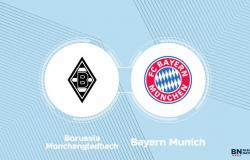What changes with RGB Local Dimming
Unlike traditional systems, where white or blue LEDs are filtered to create colors, the 116UX uses thousands of lenses each containing red, green and blue LEDs. This method allows you to generate purer colors from the source, without going through a filter. Result: 97% coverage of the BT.2020 color space, one of the widest in the Mini LED category. The TV is also designed to minimize the “halo” phenomenon. Thanks to precise control of each lens cluster, this system allows independent management of brightness and contrast, while maintaining high light intensity, with a peak announced at 10,000 nits.

Reduction of visual fatigue and energy optimization
Hisense claims that this technology reduces blue light emissions by 38%, which should limit eye strain for viewers (although this is a matter of debate). The RGB design would also improve energy efficiency compared to conventional Mini LEDseven if the company has not yet communicated precise figures on this subject.

An audio and visual immersion
On the audio side, the 116UX is equipped with a CineStage X 6.2.2 system, compatible with Dolby Atmos and DTS Virtual X, for an enveloping sound experience. On the visual side, technologies like Dolby Vision IQ and IMAX Enhanced complement the capabilities of this giant 116-inch television.
Hisense has also focused on viewing comfort. The screen is designed to limit reflections and provide a wide viewing angle, even in brightly lit rooms. Finally, with its design of less than 4 cm thick and its thin border, the television has a modern and minimalist aesthetic.
The 116UX TriChroma is therefore positioned as a very high-end product
Aimed at those seeking advanced picture and sound performance, no pricing information has yet been releasedbut this model should not be cheap, comparable to other large Mini LED or MicroLED TVs on the market.
Canada
Business





